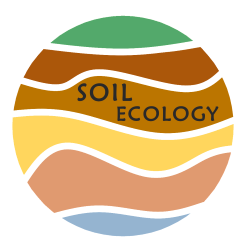| Hentschel, K; Borken, W; Matzner, E: Repeated freeze-thaw events affect leaching losses of nitirogen and dissolved organic matter in a forest soil, Journal of Plant Nutrition and Soil Science, 171, 699-706 (2008) | |
| Abstract: Freezing and thawing may substantially influence the rates of C and N cycling in soils and soil frost was proposed to induce NO3- losses with seepage from forest ecosystems. Here we test the hypothesis that freezing/thawing triggers N and dissolved organic matter release from a forest soil after thawing and that low freezing temperatures enhance the effect. Undisturbed soil columns were taken from a soil under a Norway spruce site either comprising only O horizons or O horizons + mineral soil horizons. The columns were subjected to 3 cycles of freezing/thawing at temperatures of -3°C, -8°C, -13°C. The control columns were kept at constant +5°C. Following the frost events, the columns were irrigated for 20 days at a rate of 4 mm d-1. Percolates were analyzed for total N, mineral N and dissolved organic carbon (DOC). The total amount of mineral N extracted from the O horizons in the control amounted to 8.6 g N m-2 during the experimental period of 170 days. Frost reduced the amount of mineral N leached from the soil columns with -8°C and -13°C being most effective. In these treatments only 3.1 and 4.0 g N m-2 were extracted from the O horizons. Net nitrification was more negatively affected than net ammonification. Severe soil frost increased the release of DOC from the O horizons, but the effect was only observed in the 1st freeze/thaw cycle. We found no evidence for lysis of microorganisms after soil frost. Our experiment did not confirm the hypothesis that soil frost increases N mineralization after thawing. The total amount of additionally released DOC was rather low in relation to the expected annual fluxes. |

